Here are my favorite poems about jealousy categorized:
- Short poems about jealousy
- Poems about jealousy by famous poets
- Poems about jealousy in a relationship
So if you want the best poems about jealousy, then you’re in the right place.
Let’s get right into it!

Tormenting Poems About Jealousy
Delve into an exquisitely curated collection of poems about jealousy, thoughtfully categorized to mesmerize your senses.
From envious verses that evoke raw emotions, to captivating compositions that explore the depths of this powerful emotion, find the finest examples of poetic expression in one captivating anthology.
Our handpicked selection promises to transport you to a world of tumultuous passions, where jealousy’s grip is both alluring and dangerous.
Brace yourself for an enchanting experience that delves into the darker shades of the heart.
Keep reading and enjoy!
My #1 Favorite Poem About Jealousy
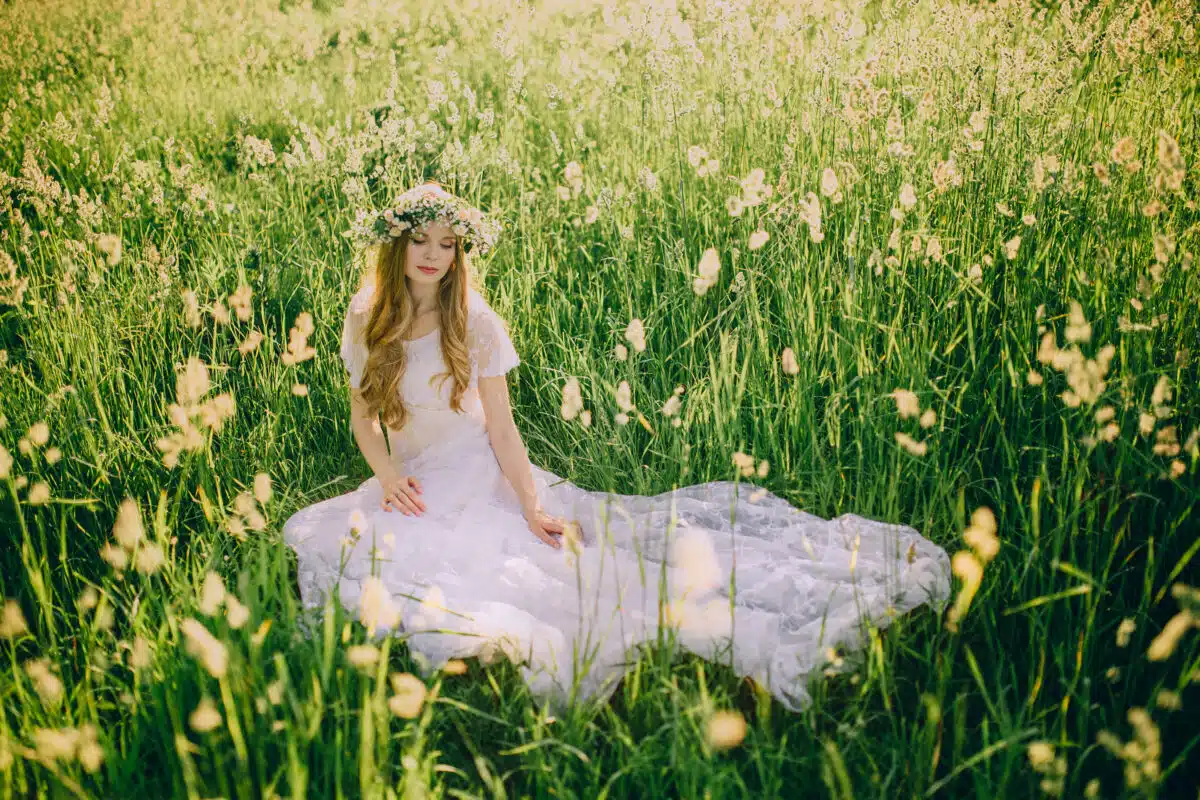
“Ode to Anactoria” by Sappho (John Myers, O’Hara, Translator)
Peer of Gods to me is the man thy presence
Crowns with joy; who hears, as he sits beside thee,
Accents sweet of thy lips the silence breaking,
With lovely laughter;
Tones that make the heart in my bosom flutter,
For if I, the space of a moment even,
Near to thee come, any word I would utter
Instantly fails me;
Vain my stricken tongue would a whisper fashion,
Subtly under my skin runs fire ecstatic;
Straightway mists surge dim to my eyes and leave them
Reft of their vision;
Echoes ring in my ears; a trembling seizes
All my body bathed in soft perspiration;
Pale as grass I grow in my passion’s madness,
Like one insensate;
But must I dare all, since to me unworthy,
Bliss thy beauty brings that a God might envy;
Never yet was fervid woman a fairer
Image of Kypris.
Ah! undying Daughter of God, befriend me!
Calm my blood that thrills with impending transport;
Feed my lips the murmur of words to stir her
Bosom to pity;
Overcome with kisses her faintest protest,
Melt her mood to mine with amorous touches,
Till her low assent and her sigh’s abandon
Lure me to rapture.
Short Poems About Jealousy
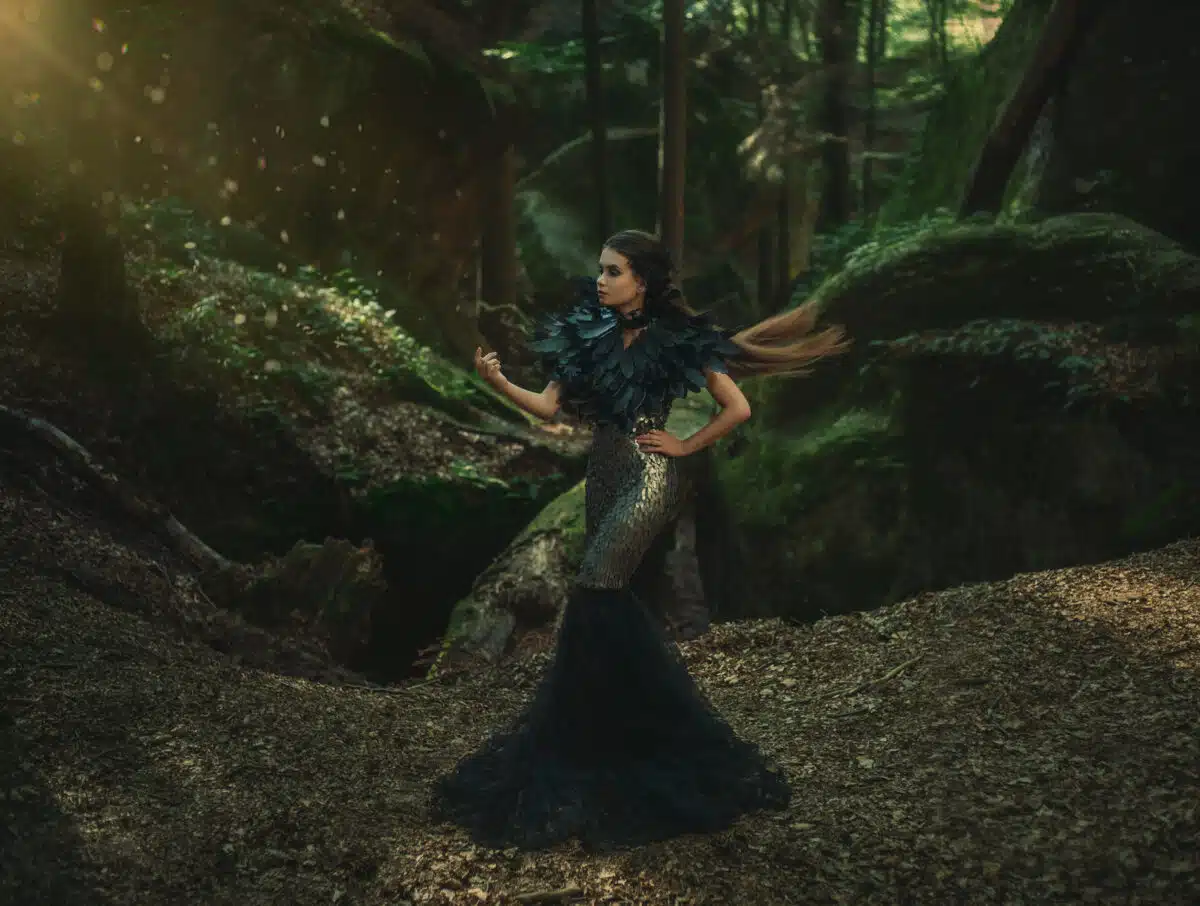
“The Jealous Gods” by Ella Wheeler Wilcox
‘Oh life is wonderful,’ she said,
‘And all my world is bright;
Can Paradise show fairer skies,
Or more effulgent light?’
(Speak lower, lower, mortal heart,
The jealous gods may hear.)
She turned for answer; but his gaze
Cut past her like a lance,
And shone like flame on one who came
With radiant glance for glance.
(You spoke too loud, O mortal heart,
The jealous gods were near.)
They walked through green and sunlit ways;
And yet the earth seemed black,
For there were three, where two should be;
So runs the world, alack.
(The listening gods, the jealous gods,
They want no Edens here.)
“Jealousy” by Ameen Rihani
The violets their soft, dark lashes part,
While robins serenade them far and near ;
But the anemone, with ebon heart
And blood-shot eyes, pretends she does not hear.
The violets invite the nightingale
Whose carols fall in dew upon their bed ;
But the hydrangea, as saffron pale,
Holds high above the wall her nodding head.
“The Cat and the Saxophone (2 A.M.)” by Langston Hughes
EVERYBODY
Half-pint,—
Gin?
No, make it
LOVES MY BABY
corn. You like
liquor,
don’t you, honey?
BUT MY BABY
Sure. Kiss me,
DON’T LOVE NOBODY
daddy.
BUT ME.
Say!
EVERYBODY
Yes?
WANTS MY BABY
I’m your
BUT MY BABY
sweetie, ain’t I?
DON’T WANT NOBODY
Sure.
BUT
Then let’s
ME,
do it!
SWEET ME.
Charleston,
mamma!
!
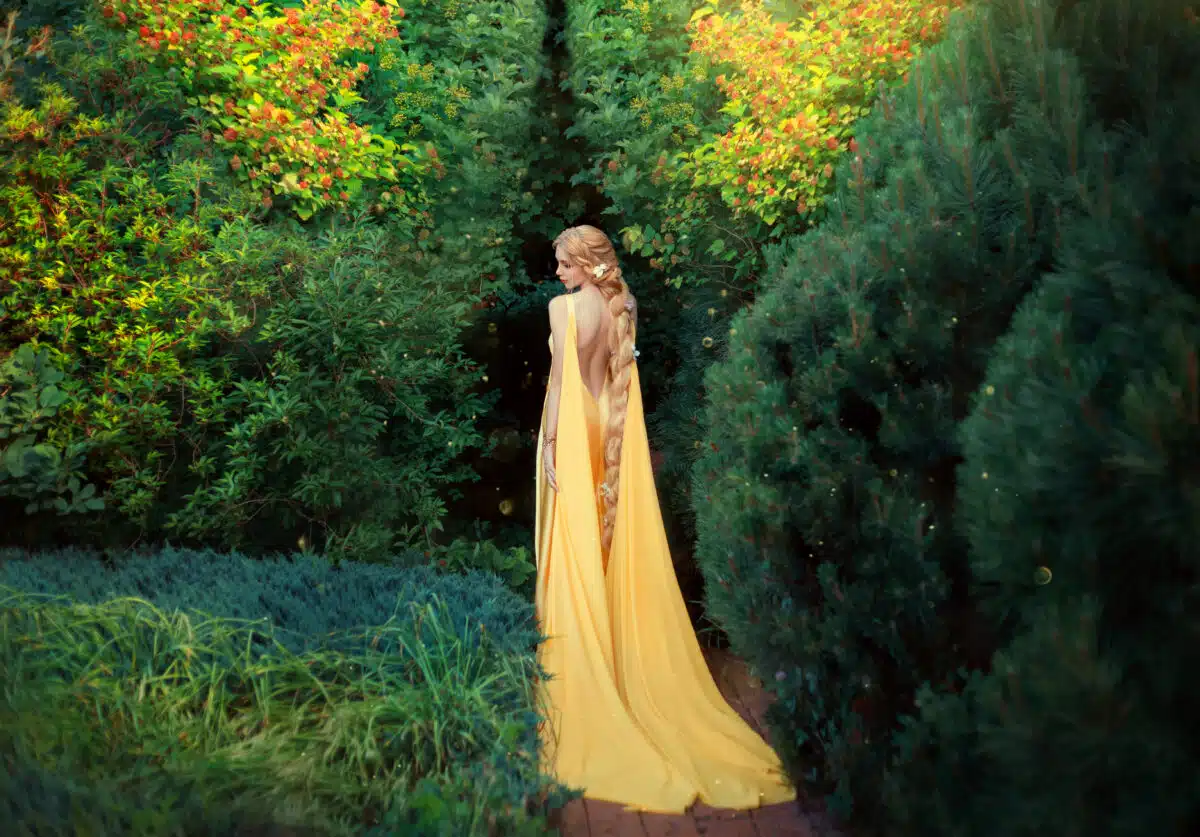
“Sonnet 75” by William Shakespeare
So are you to my thoughts as food to life,
Or as sweet-season’d showers are to the ground;
And for the peace of you I hold such strife
As ‘twixt a miser and his wealth is found.
Now proud as an enjoyer, and anon
Doubting the filching age will steal his treasure;
Now counting best to be with you alone,
Then better’d that the world may see my pleasure:
Sometime all full with feasting on your sight,
And by and by clean starved for a look;
Possessing or pursuing no delight
Save what is had, or must from you be took.
Thus do I pine and surfeit day by day,
Or gluttoning on all, or all away.
“Envy” by Adelaide Anne Procter
He was the first always: Fortune
Shone bright in his face.
I fought for years; with no effort
He conquered the place:
We ran; my feet were all bleeding,
But he won the race.
Spite of his many successes
Men loved him the same;
My one pale ray of good fortune
Met scoffing and blame.
When we erred, they gave him pity,
But me—only shame.
My home was still in the shadow,
His lay in the sun:
I longed in vain: what he asked for
It straightway was done.
Once I staked all my heart’s treasure,
We played—and he won.
Yes; and just now I have seen him,
Cold, smiling, and blest,
Laid in his coffin. God help me!
While he is at rest,
I am cursed still to live:- even
Death loved him the best.
“Addressed to Haydon” by John Keats
Highmindedness, a jealousy for good,
A loving-kindness for the great man’s fame,
Dwells here and there with people of no name,
In noisome alley, and in pathless wood:
And where we think the truth least understood,
Oft may be found a “singleness of aim,”
That ought to frighten into hooded shame
A money mong’ring, pitiable brood.
How glorious this affection for the cause
Of stedfast genius, toiling gallantly!
What when a stout unbending champion awes
Envy, and Malice to their native sty?
Unnumber’d souls breathe out a still applause,
Proud to behold him in his country’s eye.

“Sonnet 97 (O Why Should Envy, With Sweet Love Consort?)” by Barnabe Barnes
O Why should Envy, with sweet Love consort?
But that, with Love’s excess, Seven Sins unite!
Pride, that, in high respect of my delight,
I scorn all others! Lust, that with disport
In thought of her, I sometimes take comfort!
Wrath, that, with those, in secret heart I fight,
Which smile on her! and Envy, that, I spite
Such meats and wines, as to her lips resort
And touch that tongue, which I can never kiss!
Sloth, that, secure in too much love, I sleep;
And nuzzled so, am to be freed remiss!
And Covetous, I never mean can keep
In craving, wishing, and in working this;
Though still I kiss and touch, still touch and kiss!
“O, Beware, My Lord, of Jealousy (Othello, Act III, Scene III)” by William Shakespeare
O, beware, my lord, of jealousy;
It is the green-eyed monster which doth mock
The meat it feeds on; that cuckold lives in bliss
Who, certain of his fate, loves not his wronger;
But, O, what damned minutes tells he o’er
Who dotes, yet doubts, suspects, yet strongly loves!
“The Pack-Saddle” by Jean de La Fontaine
A FAMOUS painter, jealous of his wife;
Whose charms he valued more than fame or life,
When going on a journey used his art,
To paint an ASS upon a certain part,
(Umbilical, ’tis said) and like a seal:
Impressive token, nothing thence to steal.
A BROTHER brush, enamoured of the dame;
Now took advantage, and declared his flame:
The Ass effaced, but God knows how ’twas done;
Another soon howe’er he had begun,
And finished well, upon the very spot;
In painting, few more praises ever got;
But want of recollection made him place
A saddle, where before he none could trace.
THE husband, when returned, desired to look
At what he drew, when leave he lately took.
Yes, see my dear, the wily wife replied,
The Ass is witness, faithful I abide.
Zounds! said the painter, when he got a sight, –
What! – you’d persuade me ev’ry thing is right?
I wish the witness you display so well,
And him who saddled it, were both in Hell.

“Of the Jealous Man That Loved the Same Woman, and Espied This Other Sitting With Her” by Sir Thomas Wyatt
The Wand’ring gadling in the summer tide,
That finds the adder with his rechless foot,
Starts not dismay’d so suddenly aside,
As jealous despite did, though there were no boot,
When that he saw me sitting by her side,
That of my health is very crop and root.
It pleased me then to have so fair a grace,
To sting the heart, that would have had my place.
“Jealousy” by Anonymous
A seeing friend, yet enemy to rest;
A wrangling passion, yet a gladsome thought;
A bad companion, yet a welcome guest;
A knowledge wished, yet found too soon unsought:
From heaven supposed, yet sure condemned to hell
Is jealousy, and there forlorn doth dwell.
And thence doth send fond fear and false suspect
To haunt our thoughts, bewitchèd with mistrust;
Which breeds in us the issue and effect
Both of conceits and actions far unjust;
The grief, the shame, the smart whereof doth prove
That jealousy’s both death and hell to love.
For what but hell moves in the jealous heart,
Where restless fear works out all wanton joys,
Which doth both quench and kill the loving part,
And cloys the mind with worse than known annoys,
Whose pressure far exceeds hell’s deep extremes?
Such life leads Love, entangled with misdeems.
“Jealousy” by Mary Elizabeth Coleridge
“The myrtle bush grew shady
Down by the ford.”—
“Is it even so?” said my lady.
“Even so!” said my lord.
“The leaves are set too thick together
For the point of a sword.”
“The arras in your room hangs close,
No light between!
You wedded one of those
That see unseen.”—
“Is it even so?” said the King’s Majesty.
“Even so!” said the Queen.
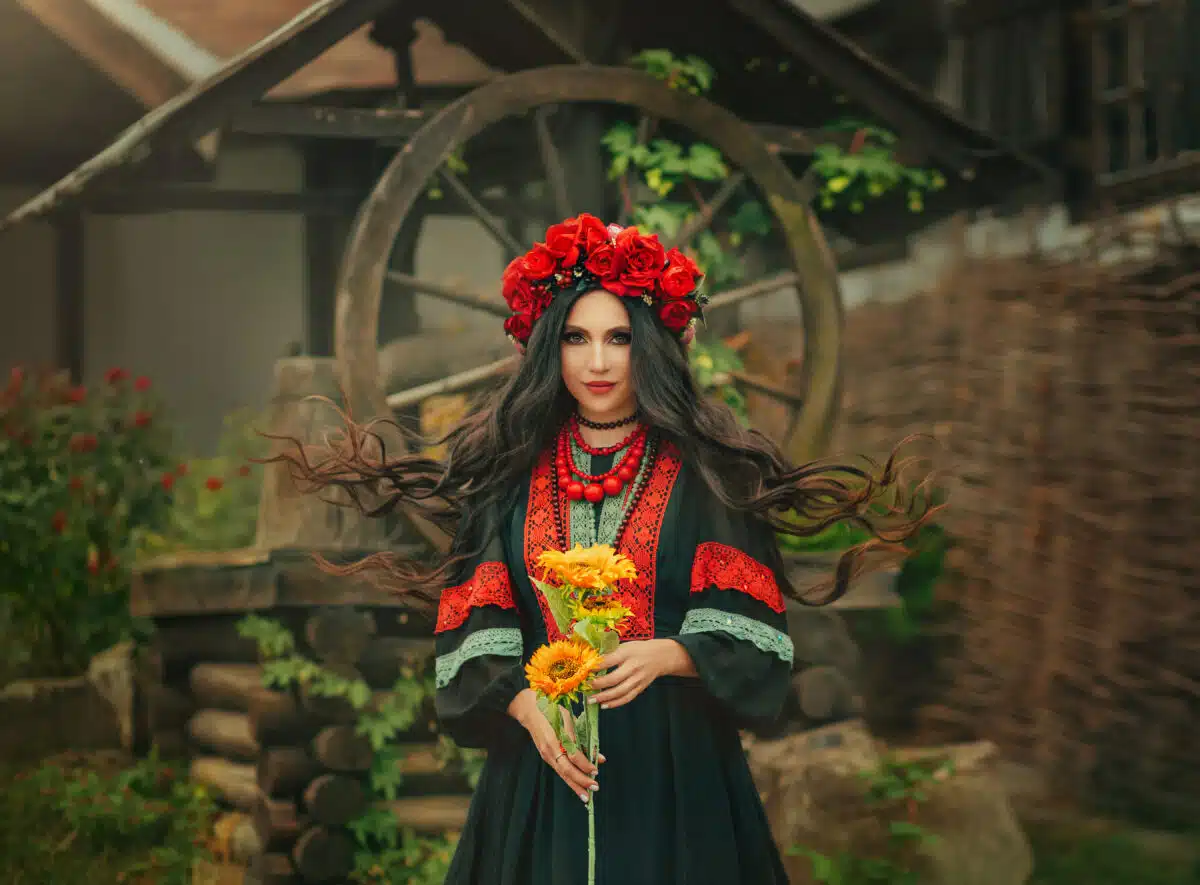
“My Pretty Rose Tree” by William Blake
A flower was offered to me,
Such a flower as May never bore;
But I said “I’ve a pretty rose tree,”
And I passed the sweet flower o’er.
Then I went to my pretty rose tree,
To tend her by day and by night;
But my rose turned away with jealousy,
And her thorns were my only delight.
“The Covetous Still Captives.” by Robert Herrick
Let’s live with that small pittance that we have;
Who covets more, is evermore a slave.
“To— (Nay, Chide Me Not That I Am Jealous, Love)” by H.
Nay, chide me not that I am jealous, love;
For in my doting fondness I am grown
A very miser of the beauties thrown
Profusely round thee from the gods above:
I ’m even jealous of the pliant glove
Embracing oft thy slight and fairy hand,
And of sly Zephyr, with his whisper bland,
Who steals a-wooing from the budding grove,
And dallies o’er thy cheek with soft caress,
And of the ray that trembles as it glows
Upon thy fresh lips’ loveliness;—
For that dear hand I would with mine enclose,
And lip and cheek I would were mine alone,
And mine the only heart that thou wouldst wish to own.
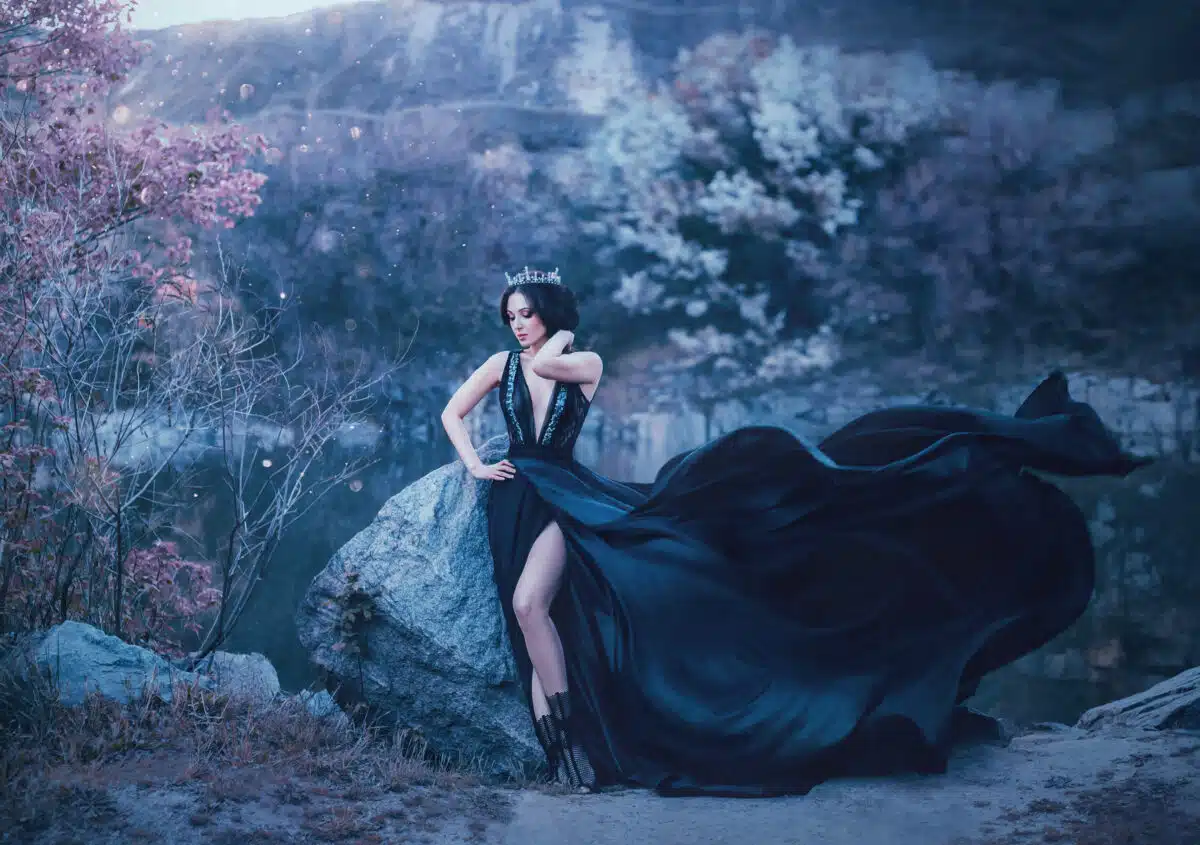
“Sonnet 81 (O Kingly Jealousy! Which Canst Admit)” by Barnabe Barnes
O Kingly Jealousy! which canst admit
No thought of compeers in thine high Desire!
Love’s bastard daughter, for true-loves unfit,
Scalding men’s hearts with force of secret fire!
Thou poisoned Canker of much beauteous Love!
Fostered with Envy’s paps, with wrathful rage!
Thou (which dost still thine own destruction move)
With eagle’s eyes, which secret watch doth wage!
With peacock’s feet, to steal in unawares!
With PROGNE’s wings, to false suspect which flies!
Which virtues hold in durance, rashly dares!
Provoker and maintainer of vain lies!
Who, with rich virtues and fair love possessed,
Causeless! hast All, to thine heart’s hell addressed!
“The Lover Envies an Old Man” by Shaemas O Sheel
I envy the feeble old man
Dozing there in the sun.
When all you can do is done
And life is a shattered plan,
What is there better than
Dozing in the sun?
I could grow very still
Like an old stone on a hill
And content me with the one
Thing that is ever kind,
The tender sun.
I could grow deaf and blind
And never hear her voice,
Nor think I could rejoice
With her in any place;
And I could forget her face,
And love only the sun.
Because when we are tired,
Very very tired,
And cannot again be fired
By any hope,
The sun is so comforting!
A little bird under the wing
Of its mother, is not so warm.
Give me only the scope
Of an old chair
Out in the air,
Let me rest there,
Moving not,
Loving not,
Only dozing my days till my days be done,
Under the sun.
“No Longer Jealous” by Walter Savage Landor
I remember the time ere his temples were grey,
And I frowned at the things he’d the boldness to say,
But now he’s grown old, he may say what he will,
I laugh at his nonsense and take nothing ill.
Indeed I must say he’s a little improved,
For he watches no longer the “slily beloved,”
No longer as once he awakens my fears,
Not a glance he perceives, not a whisper he hears.
If he heard one of late, it has never transpired,
For his only delight is to see me admired;
And now pray what better return can I make,
Than to flirt and be always admired—for his sake?
Poems About Jealousy by Famous Poets

“Jealousy” by Alexander Pushkin
Damp day’s light is quenched: damp night’s darkness
Stretches over the sky its leaden garment.
Like a ghost, from behind the pine wood
Foggy moon has risen….
All brings upon my soul darkness grievous.
Far, far away rises the shining moon,
There the earth is filled with evening warmth
There the sea moveth with luxuriant wave
Under the heavens blue….
Now is the time. On the hillside now she walks
To the shore washed by noisy waves.
There, under the billowed cliffs
Alone she sits now melancholy….
Her knees none kisses in ecstasy.
Alone … to lips of none she is yielding
Her shoulders, nor moist lips, nor snow-white fingers.
. . . . . . . . . . . . . . . . .
. . . . . . . . . . . . . . . . .
None is worthy of her heavenly love.
Is it not so? Thou art alone. . . . Thou weepest. . . .
And I at peace? . . . . . . .
. . . . . . . . . . . .
But if . . . . . . .
“The Song of Hiawatha III – Hiawatha’s Childhood” by Henry Wadsworth Longfellow
Downward through the evening twilight,
In the days that are forgotten,
In the unremembered ages,
From the full moon fell Nokomis,
Fell the beautiful Nokomis,
She a wife, but not a mother.
She was sporting with her women,
Swinging in a swing of grape-vines,
When her rival, the rejected,
Full of jealousy and hatred,
Cut the leafy swing asunder,
Cut in twain the twisted grape-vines,
And Nokomis fell affrighted
Downward through the evening twilight,
On the Muskoday, the meadow,
On the prairie full of blossoms.
“See! a star falls!” said the people;
“From the sky a star is falling!”
There among the ferns and mosses,
There among the prairie lilies,
On the Muskoday, the meadow,
In the moonlight and the starlight,
Fair Nokomis bore a daughter.
And she called her name Wenonah,
As the first-born of her daughters.
And the daughter of Nokomis
Grew up like the prairie lilies,
Grew a tall and slender maiden,
With the beauty of the moonlight,
With the beauty of the starlight.
And Nokomis warned her often,
Saying oft, and oft repeating,
“Oh, beware of Mudjekeewis,
Of the West-Wind, Mudjekeewis;
Listen not to what he tells you;
Lie not down upon the meadow,
Stoop not down among the lilies,
Lest the West-Wind come and harm you!”
But she heeded not the warning,
Heeded not those words of wisdom,
And the West-Wind came at evening,
Walking lightly o’er the prairie,
Whispering to the leaves and blossoms,
Bending low the flowers and grasses,
Found the beautiful Wenonah,
Lying there among the lilies,
Wooed her with his words of sweetness,
Wooed her with his soft caresses,
Till she bore a son in sorrow,
Bore a son of love and sorrow.
Thus was born my Hiawatha,
Thus was born the child of wonder;
But the daughter of Nokomis,
Hiawatha’s gentle mother,
In her anguish died deserted
By the West-Wind, false and faithless,
By the heartless Mudjekeewis.
For her daughter long and loudly
Wailed and wept the sad Nokomis;
“Oh that I were dead!” she murmured,
“Oh that I were dead, as thou art!
No more work, and no more weeping,
Wahonowin! Wahonowin!”
By the shores of Gitche Gumee,
By the shining Big-Sea-Water,
Stood the wigwam of Nokomis,
Daughter of the Moon, Nokomis.
Dark behind it rose the forest,
Rose the black and gloomy pine-trees,
Rose the firs with cones upon them;
Bright before it beat the water,
Beat the clear and sunny water,
Beat the shining Big-Sea-Water.
There the wrinkled old Nokomis
Nursed the little Hiawatha,
Rocked him in his linden cradle,
Bedded soft in moss and rushes,
Safely bound with reindeer sinews;
Stilled his fretful wail by saying,
“Hush! the Naked Bear will hear thee!”
Lulled him into slumber, singing,
“Ewa-yea! my little owlet!
Who is this, that lights the wigwam?
With his great eyes lights the wigwam?
Ewa-yea! my little owlet!”
Many things Nokomis taught him
Of the stars that shine in heaven;
Showed him Ishkoodah, the comet,
Ishkoodah, with fiery tresses;
Showed the Death-Dance of the spirits,
Warriors with their plumes and war-clubs,
Flaring far away to northward
In the frosty nights of Winter;
Showed the broad white road in heaven,
Pathway of the ghosts, the shadows,
Running straight across the heavens,
Crowded with the ghosts, the shadows.
At the door on summer evenings
Sat the little Hiawatha;
Heard the whispering of the pine-trees,
Heard the lapping of the water,
Sounds of music, words of wonder;
‘Minne-wawa!” said the Pine-trees,
Mudway-aushka!” said the water.
Saw the fire-fly, Wah-wah-taysee,
Flitting through the dusk of evening,
With the twinkle of its candle
Lighting up the brakes and bushes,
And he sang the song of children,
Sang the song Nokomis taught him:
“Wah-wah-taysee, little fire-fly, L
ittle, flitting, white-fire insect,
Little, dancing, white-fire creature,
Light me with your little candle,
Ere upon my bed I lay me,
Ere in sleep I close my eyelids!”
Saw the moon rise from the water
Rippling, rounding from the water,
Saw the flecks and shadows on it,
Whispered, “What is that, Nokomis?”
And the good Nokomis answered:
“Once a warrior, very angry,
Seized his grandmother, and threw her
Up into the sky at midnight;
Right against the moon he threw her;
‘T is her body that you see there.”
Saw the rainbow in the heaven,
In the eastern sky, the rainbow,
Whispered, “What is that, Nokomis?”
And the good Nokomis answered:
“‘T is the heaven of flowers you see there;
All the wild-flowers of the forest,
All the lilies of the prairie,
When on earth they fade and perish,
Blossom in that heaven above us.”
When he heard the owls at midnight,
Hooting, laughing in the forest,
“What is that?” he cried in terror,
“What is that,” he said, “Nokomis?”
And the good Nokomis answered:
“That is but the owl and owlet,
Talking in their native language,
Talking, scolding at each other.”
Then the little Hiawatha
Learned of every bird its language,
Learned their names and all their secrets,
How they built their nests in Summer,
Where they hid themselves in Winter,
Talked with them whene’er he met them,
Called them “Hiawatha’s Chickens.”
Of all beasts he learned the language,
Learned their names and all their secrets,
How the beavers built their lodges,
Where the squirrels hid their acorns,
How the reindeer ran so swiftly,
Why the rabbit was so timid,
Talked with them whene’er he met them,
Called them “Hiawatha’s Brothers.”
Then Iagoo, the great boaster,
He the marvellous story-teller,
He the traveller and the talker,
He the friend of old Nokomis,
Made a bow for Hiawatha;
From a branch of ash he made it,
From an oak-bough made the arrows,
Tipped with flint, and winged with feathers,
And the cord he made of deer-skin.
Then he said to Hiawatha:
“Go, my son, into the forest,
Where the red deer herd together,
Kill for us a famous roebuck,
Kill for us a deer with antlers!”
Forth into the forest straightway
All alone walked Hiawatha
Proudly, with his bow and arrows;
And the birds sang round him, o’er him,
“Do not shoot us, Hiawatha!”
Sang the robin, the Opechee, Sang the bluebird, the Owaissa,
“Do not shoot us, Hiawatha!”
Up the oak-tree, close beside him,
Sprang the squirrel, Adjidaumo,
In and out among the branches,
Coughed and chattered from the oak-tree,
Laughed, and said between his laughing,
“Do not shoot me, Hiawatha!”
And the rabbit from his pathway
Leaped aside, and at a distance
Sat erect upon his haunches,
Half in fear and half in frolic,
Saying to the little hunter,
“Do not shoot me, Hiawatha!”
But he heeded not, nor heard them,
For his thoughts were with the red deer;
On their tracks his eyes were fastened,
Leading downward to the river,
To the ford across the river,
And as one in slumber walked he.
Hidden in the alder-bushes,
There he waited till the deer came,
Till he saw two antlers lifted,
Saw two eyes look from the thicket,
Saw two nostrils point to windward,
And a deer came down the pathway,
Flecked with leafy light and shadow.
And his heart within him fluttered,
Trembled like the leaves above him,
Like the birch-leaf palpitated,
As the deer came down the pathway.
Then, upon one knee uprising,
Hiawatha aimed an arrow;
Scarce a twig moved with his motion,
Scarce a leaf was stirred or rustled,
But the wary roebuck started,
Stamped with all his hoofs together,
Listened with one foot uplifted,
Leaped as if to meet the arrow;
Ah! the singing, fatal arrow,
Like a wasp it buzzed and stung him!
Dead he lay there in the forest,
By the ford across the river;
Beat his timid heart no longer,
But the heart of Hiawatha
Throbbed and shouted and exulted,
As he bore the red deer homeward,
And Iagoo and Nokomis
Hailed his coming with applauses.
From the red deer’s hide Nokomis
Made a cloak for Hiawatha,
From the red deer’s flesh Nokomis
Made a banquet to his honor.
All the village came and feasted,
All the guests praised Hiawatha,
Called him Strong-Heart, Soan-ge-taha!
Called him Loon-Heart, Mahn-go-tay see!
“Ode to Fanny” by John Keats
1
Physician Nature! Let my spirit blood!
O ease my heart of verse and let me rest;
Throw me upon thy Tripod, till the flood
Of stifling numbers ebbs from my full breast.
A theme! a theme! great nature! give a theme;
Let me begin my dream.
I come I see thee, as thou standest there,
Beckon me not into the wintry air.
2
Ah! dearest love, sweet home of all my fears,
And hopes, and joys, and panting miseries,
To-night, if I may guess, thy beauty wears
A smile of such delight,
As brilliant and as bright,
As when with ravished, aching, vassal eyes,
Lost in soft amaze,
I gaze, I gaze!
3
Who now, with greedy looks, eats up my feast?
What stare outfaces now my silver moon!
Ah! keep that hand unravished at the least;
Let, let, the amorous burn
But pr’ythee, do not turn
The current of your heart from me so soon.
O! save, in charity,
The quickest pulse for me.
4
Save it for me, sweet love! though music breathe
Voluptuous visions into the warm air;
Though swimming through the dance’s dangerous wreath,
Be like an April day,
Smiling and cold and gay,
A temperate lilly, temperate as fair;
Then, Heaven! there will be
A warmer June for me.
5
Why, this, you’ll say, my Fanny! is not true:
Put your soft hand upon your snowy side,
Where the heart beats: confess ’tis nothing new
Must not a woman be
A feather on the sea,
Sway’d to and fro by every wind and tide?
Of as uncertain speed
As blow-ball from the mead?
6
I know it and to know it is despair
To one who loves you as I love, sweet Fanny!
Whose heart goes fluttering for you every where,
Nor, when away you roam,
Dare keep its wretched home,
Love, love alone, his pains severe and many:
Then, loveliest! keep me free,
From torturing jealousy.
7
Ah! if you prize my subdued soul above
The poor, the fading, brief, pride of an hour;
Let none profane my Holy See of love,
Or with a rude hand break
The sacramental cake:
Let none else touch the just new-budded flower;
If not may my eyes close,
Love! on their lost repose.

“I Envy Seas Whereon He Rides” by Emily Dickinson
I envy seas whereon he rides,
I envy spokes of wheels
Of chariots that him convey,
I envy speechless hills
That gaze upon his journey;
How easy all can see
What is forbidden utterly
As heaven, unto me!
I envy nests of sparrows
That dot his distant eaves,
The wealthy fly upon his pane,
The happy, happy leaves
That just abroad his window
Have summer’s leave to be,
The earrings of Pizarro
Could not obtain for me.
I envy light that wakes him,
And bells that boldly ring
To tell him it is noon abroad,—
Myself his noon could bring,
Yet interdict my blossom
And abrogate my bee,
Lest noon in everlasting night
Drop Gabriel and me.
“Jealous” by Paul Laurence Dunbar
Hyeah come Cæsar Higgins,
Don’t he think he ‘s fine?
Look at dem new riggin’s
Ain’t he tryin’ to shine?
Got a standin’ collar
An’ a stove-pipe hat,
I ‘ll jes’ bet a dollar
Some one gin him dat.
Don’t one o’ you mention,
Nothin’ ’bout his cloes,
Don’t pay no attention,
Er let on you knows
Dat he ‘s got ’em on him,
Why, ‘t ‘ll mek him sick,
Jes go on an’ sco’n him,
My, ain’t dis a trick!
Look hyeah, whut ‘s he doin’
Lookin’ t’ othah way?
Dat ere move ‘s a new one,
Some one call him, “Say!”
Can’t you see no pusson–
Puttin’ on you’ airs,
Sakes alive, you ‘s wuss’n
Dese hyeah millionaires.
Need n’t git so flighty,
Case you got dat suit.
Dem cloes ain’t so mighty,–
Second hand to boot,
I ‘s a-tryin’ to spite you!
Full of jealousy!
Look hyeah, man, I ‘ll fight you,
Don’t you fool wid me!
“Why, Man, He Doth Bestride the Narrow World (Julius Caesar, Act I, Scene II)” by William Shakespeare
Why, man, he doth bestride the narrow world
Like a Colossus, and we petty men
Walk under his huge legs and peep about
To find ourselves dishonorable graves.
Men at some time are masters of their fates.
The fault, dear Brutus, is not in our stars,
But in ourselves, that we are underlings.
“Brutus” and “Caesar”—what should be in that “Caesar”?
Why should that name be sounded more than yours?
Write them together, yours is as fair a name;
Sound them, it doth become the mouth as well;
Weigh them, it is as heavy; conjure with ’em,
“Brutus” will start a spirit as soon as “Caesar.”
Now, in the names of all the gods at once,
Upon what meat doth this our Caesar feed
That he is grown so great? Age, thou art shamed!
Rome, thou hast lost the breed of noble bloods!
When could they say, till now, that talked of Rome,
That her wide walks encompassed but one man?
Now is it Rome indeed, and room enough
When there is in it but only one man.
O, you and I have heard our fathers say
There was a Brutus once that would have brooked
Th’ eternal devil to keep his state in Rome
As easily as a king.
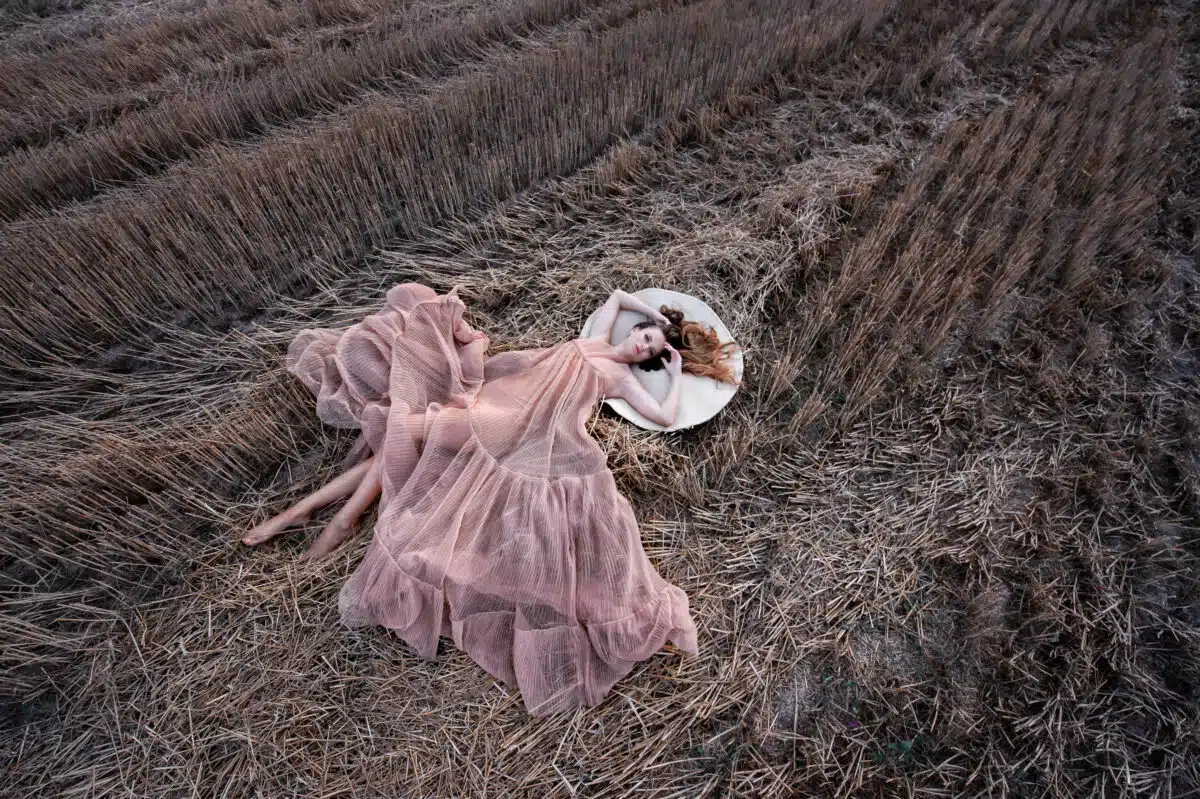
“In Summer” by Paul Laurence Dunbar
Oh, summer has clothed the earth
In a cloak from the loom of the sun!
And a mantle, too, of the skies’ soft blue,
And a belt where the rivers run.
And now for the kiss of the wind,
And the touch of the air’s soft hands,
With the rest from strife and the heat of life,
With the freedom of lakes and lands.
I envy the farmer’s boy
Who sings as he follows the plow;
While the shining green of the young blades lean
To the breezes that cool his brow.
He sings to the dewy morn,
No thought of another’s ear;
But the song he sings is a chant for kings
And the whole wide world to hear.
He sings of the joys of life,
Of the pleasures of work and rest,
From an o’erfull heart, without aim or art;
‘T is a song of the merriest.
O ye who toil in the town,
And ye who moil in the mart,
Hear the artless song, and your faith made strong
Shall renew your joy of heart.
Oh, poor were the worth of the world
If never a song were heard,—
If the sting of grief had no relief,
And never a heart were stirred.
So, long as the streams run down,
And as long as the robins trill,
Let us taunt old Care with a merry air,
And sing in the face of ill.
“Elegy I: Jealousy” by John Donne
Fond woman, which wouldst have thy husband die,
And yet complain’st of his great jealousy;
If, swollen with poison, he lay in his last bed,
His body with a sere bark covered,
Drawing his breath as thick and short as can
The nimblest crocheting musician,
Ready with loathsome vomiting to spew
His soul out of one hell into a new,
Made deaf with his poor kindred’s howling cries,
Begging with few feign’d tears great legacies,—
Thou wouldst not weep, but jolly, and frolic be,
As a slave, which to-morrow should be free.
Yet weep’st thou, when thou seest him hungerly
Swallow his own death, heart’s-bane jealousy?
O give him many thanks, he’s courteous,
That in suspecting kindly warneth us.
We must not, as we used, flout openly,
In scoffing riddles, his deformity;
Nor at his board together being sat,
With words, nor touch, scarce looks, adulterate.
Nor when he, swollen and pamper’d with great fare,
Sits down and snorts, caged in his basket chair,
Must we usurp his own bed any more,
Nor kiss and play in his house, as before.
Now I see many dangers; for it is
His realm, his castle, and his diocese.
But if—as envious men, which would revile
Their prince, or coin his gold, themselves exile
Into another country, and do it there—
We play in another house, what should we fear?
There we will scorn his household policies,
His silly plots, and pensionary spies,
As the inhabitants of Thames’ right side
Do London’s mayor, or Germans the Pope’s pride.
“I Know That Virtue to Be In You, Brutus (Julius Caesar, Act I, Scene II)” by William Shakespeare
I know that virtue to be in you, Brutus,
As well as I do know your outward favor.
Well, honor is the subject of my story.
I cannot tell what you and other men
Think of this life; but, for my single self,
I had as lief not be as live to be
In awe of such a thing as I myself.
I was born free as Caesar; so were you;
We both have fed as well, and we can both
Endure the winter’s cold as well as he.
For once, upon a raw and gusty day,
The troubled Tiber chafing with her shores,
Caesar said to me “Dar’st thou, Cassius, now
Leap in with me into this angry flood
And swim to yonder point?” Upon the word,
Accoutered as I was, I plungèd in
And bade him follow; so indeed he did.
The torrent roared, and we did buffet it
With lusty sinews, throwing it aside
And stemming it with hearts of controversy.
But ere we could arrive at the point proposed,
Caesar cried “Help me, Cassius, or I sink!”
I, as Aeneas, our great ancestor,
Did from the flames of Troy upon his shoulder
The old Anchises bear, so from the waves of Tiber
Did I the tired Caesar. And this man
Is now become a god, and Cassius is
A wretched creature and must bend his body
If Caesar carelessly but nod on him.
He had a fever when he was in Spain,
And when the fit was on him, I did mark
How he did shake. ’Tis true, this god did shake.
His coward lips did from their color fly,
And that same eye whose bend doth awe the world
Did lose his luster. I did hear him groan.
Ay, and that tongue of his that bade the Romans
Mark him and write his speeches in their books,
“Alas,” it cried “Give me some drink, Titinius”
As a sick girl. You gods, it doth amaze me
A man of such feeble temper should
So get the start of the majestic world
And bear the palm alone.
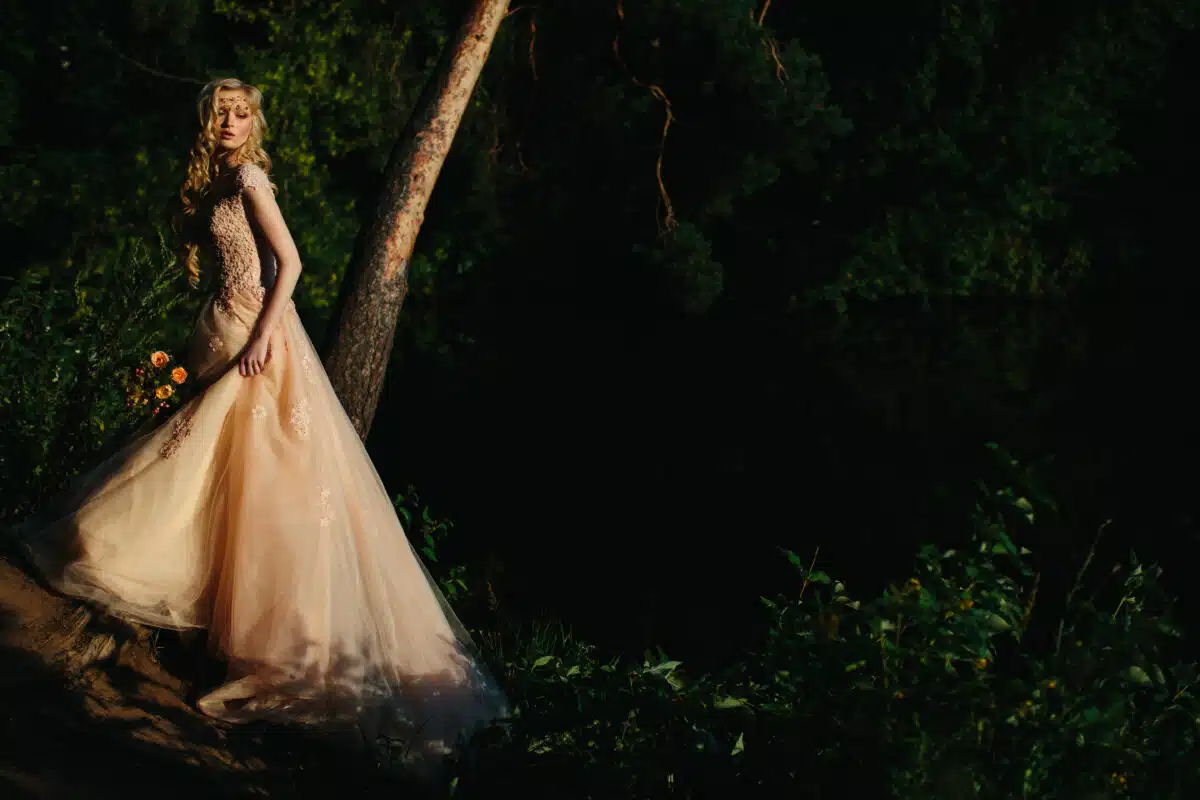
“What’s He That Wishes So? (Henry V, Act V, Scene III)” by William Shakespeare
What’s he that wishes so?
My cousin Westmoreland? No my fair cousin:
If we are mark’d to die, we are enow
To do our country loss; and if to live,
The fewer men, the greater share of honor.
God’s will! I pray thee, wish not one man more.
By Jove, I am not covetous for gold,
Nor care I who doth feed upon my cost;
It yearns me not if men my garments wear;
Such outward things dwell not in my desires:
But if it be a sin to covet honor,
I am the most offending soul alive.
No, faith, my coz, wish not a man from England:
God’s peace! I would not lose so great an honor
As one man more, methinks, would share from me
For the best hope I have. O, do not wish one more!
Rather proclaim it, Westmoreland, through my host,
That he which hath no stomach to this fight,
Let him depart; his passport shall be made
And crowns for convoy put into his purse:
We would not die in that man’s company
That fears his fellowship to die with us.
This day is called the feast of Crispian:
He that outlives this day, and comes safe home
Will stand a tip-toe when the day is named,
And rouse him at the name of Crispian.
He that shall live this day, and see old age,
Will yearly on the vigil feast his neighbors,
And say ‘To-morrow is Saint Crispian:’
Then will he strip his sleeve and show his scars.
And say ‘These wounds I had on Crispin’s day.’
Old men forget: yet all shall be forgot,
But he’ll remember with advantages
What feats he did that day: then shall our names,
Familiar in his mouth as household words
Harry the king, Bedford and Exeter,
Warwick and Talbot, Salisbury and Gloucester,
Be in their flowing cups freshly remember’d.
This story shall the good man teach his son;
And Crispin Crispian shall ne’er go by,
From this day to the ending of the world,
But we in it shall be remember’d;
We few, we happy few, we band of brothers;
For he to-day that sheds his blood with me
Shall be my brother; be he ne’er so vile,
This day shall gentle his condition:
And gentlemen in England now a-bed
Shall think themselves accursed they were not here,
And hold their manhoods cheap whiles any speaks
That fought with us upon Saint Crispin’s day.
Poems About Jealousy in a Relationship

“The Jealous Husband” by Jean de La Fontaine
A CERTAIN husband who, from jealous fear,
With one eye slept while t’other watched his dear,
Deprived his wife of every social joy,
(Friends oft the jealous character annoy,)
And made a fine collection in a book,
Of tricks with which the sex their wishes hook.
Strange fool! as if their wiles, to speak the truth,
Were not a hydra, both in age and youth.
HIS wife howe’er engaged his constant cares;
He counted e’en the number of her hairs;
And kept a hag who followed every hour,
Where’er she went, each motion to devour;
Duenna like, true semblance of a shade,
That never quits, yet moves as if afraid.
THIS arch collection, like a prayer-book bound;
Was in the blockhead’s pocket always found,
The form religious of the work, he thought,
Would prove a charm ‘gainst vice whenever sought!
ONE holy day, it happened that our dame,
As from the neighb’ring church she homeward came;
And passed a house, some wight, concealed from view;
A basket full of filth upon her threw.
WITH anxious care apologies were made;
The lady, frightened by the frolick played,
Quite unsuspicious to the mansion went;
Her aged friend for other clothes she sent,
Who hurried home, and ent’ring out of breath;
Informed old hunks – what pained him more than death
ZOUNDS! cried the latter, vainly I may look
To find a case like this within my book;
A dupe I’m made, and nothing can be worse: –
Hell seize the work – ’tis thoroughly a curse!
NOT wrong he proved, for, truly to confess;
This throwing dirt upon the lady’s dress
Was done to get the hag, with Argus’ eyes
Removed a certain distance from the prize.
The gay gallant, who watched the lucky hour,
Felt doubly blessed to have her in his power.
HOW vain our schemes to guard the wily sex!
Oft plots we find, that ev’ry sense perplex.
Go, jealous husbands, books of cases burn;
Caresses lavish, and you’ll find return
“Jealousy” by Rupert Brooke
When I see you, who were so wise and cool,
Gazing with silly sickness on that fool
You’ve given your love to, your adoring hands
Touch his so intimately that each understands,
I know, most hidden things; and when I know
Your holiest dreams yield to the stupid bow
Of his red lips, and that the empty grace
Of those strong legs and arms, that rosy face,
Has beaten your heart to such a flame of love,
That you have given him every touch and move,
Wrinkle and secret of you, all your life,
Oh! then I know I’m waiting, lover-wife,
For the great time when love is at a close,
And all its fruit’s to watch the thickening nose
And sweaty neck and dulling face and eye,
That are yours, and you, most surely, till you die!
Day after day you’ll sit with him and note
The greasier tie, the dingy wrinkling coat;
As prettiness turns to pomp, and strength to fat,
And love, love, love to habit!
And after that,
When all that’s fine in man is at an end,
And you, that loved young life and clean, must tend
A foul sick fumbling dribbling body and old,
When his rare lips hang flabby and can’t hold
Slobber, and you’re enduring that worst thing,
Senility’s queasy furtive love-making,
And searching those dear eyes for human meaning,
Propping the bald and helpless head, and cleaning
A scrap that life’s flung by, and love’s forgotten,
Then you’ll be tired; and passion dead and rotten;
And he’ll be dirty, dirty!
O lithe and free
And lightfoot, that the poor heart cries to see,
That’s how I’ll see your man and you!
But you
Oh, when THAT time comes, you’ll be dirty too!
“The Rivals” by Paul Laurence Dunbar
‘Twas three an’ thirty year ago,
I When I was ruther young, you know,
I had my last an’ only fight
About a gal one summer night.
‘Twas me an’ Zekel Johnson; Zeke
‘N’ me’d be’n spattin’ ‘bout a week,
Each of us tryin’ his best to show
That he was Liza Jones’s beau.
We couldn’t neither prove the thing,
Fur she was fur too sharp to fling
One over fur the other one
An’ by so doin’ stop the fun
That we chaps didn’t have the sense
To see she got at our expense,
But that’s the way a feller does,
Fur boys is fools an’ allus was.
An’ when they’s females in the game
I reckon men’s about the same.
Well, Zeke an’ me went on that way
An’ fussed an’ quarrelled day by day;
While Liza, mindin’ not the fuss,
Jest kep’ a-goin’ with both of us,
Tell we pore chaps, that’s Zeke an’ me,
Was jest plum mad with jealousy.
Well, fur a time we kep’ our places,
An’ only showed by frownin’ faces
An’ looks ’at well our meanin’ boded
How full o’ fight we both was loaded.
At last it come, the thing broke out,
An’ this is how it come about.
One night (’t was fair, you’ll all agree)
I got Eliza’s company,
An’ leavin’ Zekel in the lurch,
Went trottin’ off with her to church.
An’ jest as we had took our seat
(Eliza lookin’ fair an’ sweet),
Why, I jest couldn’t help but grin
When Zekel come a-bouncin’ in
As furious as the law allows.
He’d jest be’n up to Liza’s house,
To find her gone, then come to church
To have this end put to his search.
I guess I laffed that meetin’ through,
An’ not a mortal word I knew
Of what the preacher preached er read
Er what the choir sung er said.
Fur every time I’d turn my head
I couldn’t skeercely help but see
’At Zekel had his eye on me.
An’ he ’ud sort o’ turn an’ twist
An’ grind his teeth an’ shake his fist.
I laughed, fur la! the hull church seen us,
An’ knowed that suthin’ was between us.
Well, meetin’ out, we started hum,
I sorter feelin’ what would come.
We’d jest got out, when up stepped Zeke,
An’ said, “Scuse me, I’d like to speak
To you a minute.” “Cert,” said I—
A-nudgin’ Liza on the sly
An’ laughin’ in my sleeve with glee,
I asked her, please, to pardon me.
We walked away a step er two,
Jest to git out o’ Liza’s view,
An’ then Zeke said, “I want to know
Ef you think you’re Eliza’s beau,
An’ ’at I’m goin’ to let her go
Hum with sich a chap as you?”
An’ I said bold, ‘You bet I do.’
Then Zekel, sneerin’, said ’at he
Didn’t want to hender me.
But then he ’lowed the gal was his
An’ ’at he guessed he knowed his biz,
An’ wasn’t feared o’ all my kin
With all my friends an’ chums throwed in.
Some other things he mentioned there
That no born man could no ways bear
Er think o’ ca’mly tryin’ to stan’
Ef Zeke had be’n the bigges’ man
In town, an’ not the leanest runt ’
At time an’ labor ever stunt.
An’ so I let my fist go “bim,”
I thought I’d mos’ nigh finished him.
But Zekel didn’t take it so.
He jest ducked down an’ dodged my blow
An’ then come back at me so hard,
I guess I must ’a’ hurt the yard,
Er spilet the grass plot where I fell,
An’ sakes alive it hurt me; well,
It wouldn’t be’n so bad, you see,
But he jest kep’ a-hittin’ me.
An’ I hit back an’ kicked an’ pawed,
But ’t seemed ’twas mostly air I clawed,
While Zekel used his science well
A-makin’ every motion tell.
He punched an’ hit, why, goodness lands,
Seemed like he had a dozen hands.
Well, afterwhile they stopped the fuss,
An’ some one kindly parted us.
All beat an’ cuffed an’ clawed an’ scratched,
An’ needin’ both our faces patched,
Each started hum a different way;
An’ what o’ Liza, do you say,
Why, Liza—little humbug—dern her,
Why, she’d gone home with Hiram Turner.
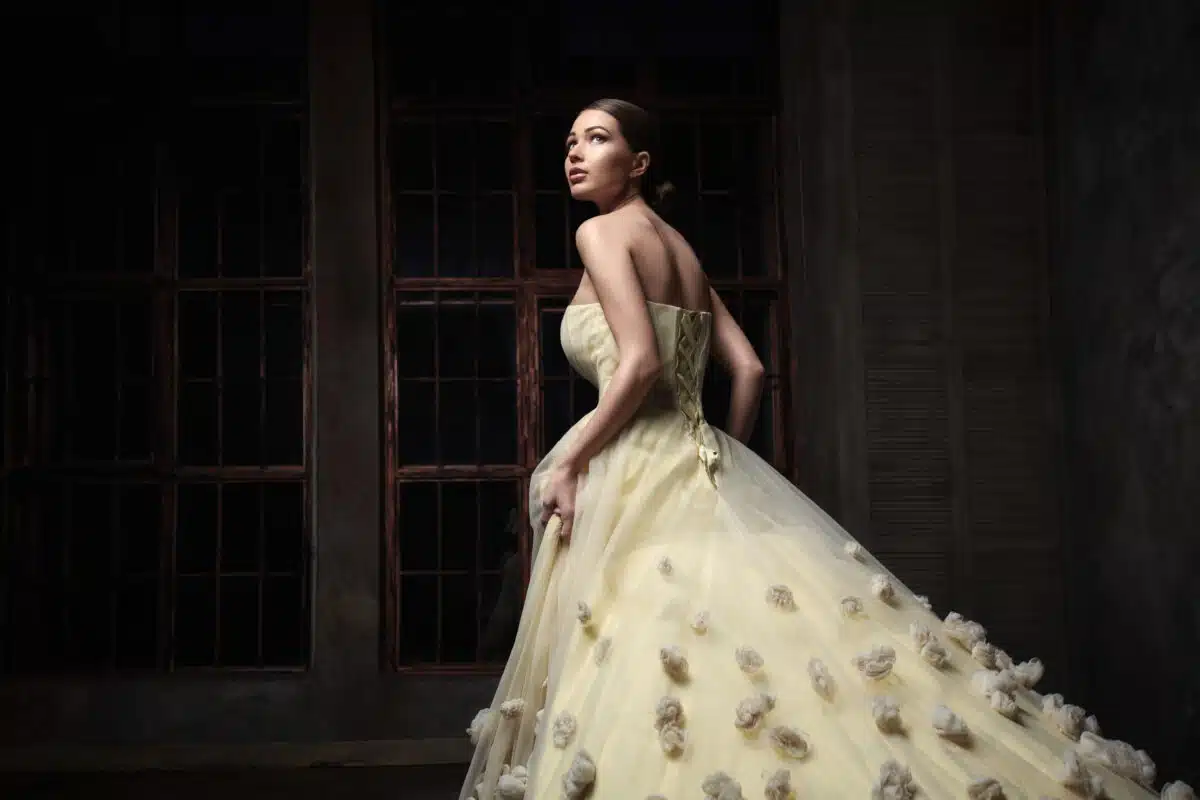
“Constancy” by Elsa Gidlow
You’re jealous if I kiss this girl and that.
You think I should be constant to one mouth.
Little you know of my too quenchless drouth.
My sister, I keep faith with love, not lovers.
Life laid a flaming finger on my heart,
Gave me an electric golden thread,
Pointed to a pile of beads and said:
Link me one more perfect than the rest.
Love’s the thread, my sister, you a bead,
An ivory one, you are so delicate.
These first burned ash-grey—far too passionate.
Farther on the colors mount and sing.
When the last bead’s painted with the last design
And slipped upon the thread, I’ll tie it so,
Then smiling quietly, I’ll turn and go
While vain Life boasts her latest ornament.
“Christabel” by Samuel Taylor Coleridge
PART I
‘Tis the middle of night by the castle clock
And the owls have awakened the crowing cock;
Tu-whit!- Tu-whoo!
And hark, again! the crowing cock,
How drowsily it crew.
Sir Leoline, the Baron rich,
Hath a toothless mastiff, which
From her kennel beneath the rock
Maketh answer to the clock,
Four for the quarters, and twelve for the hour;
Ever and aye, by shine and shower,
Sixteen short howls, not over loud;
Some say, she sees my lady’s shroud.
Is the night chilly and dark?
The night is chilly, but not dark.
The thin gray cloud is spread on high,
It covers but not hides the sky.
The moon is behind, and at the full;
And yet she looks both small and dull.
The night is chill, the cloud is gray:
‘T is a month before the month of May,
And the Spring comes slowly up this way.
The lovely lady, Christabel,
Whom her father loves so well,
What makes her in the wood so late,
A furlong from the castle gate?
She had dreams all yesternight
Of her own betrothed knight;
And she in the midnight wood will pray
For the weal of her lover that’s far away.
She stole along, she nothing spoke,
The sighs she heaved were soft and low,
And naught was green upon the oak,
But moss and rarest mistletoe:
She kneels beneath the huge oak tree,
And in silence prayeth she
The lady sprang up suddenly,
The lovely lady, Christabel!
It moaned as near, as near can be,
But what it is she cannot tell.-
On the other side it seems to be,
Of the huge, broad-breasted, old oak tree.
The night is chill; the forest bare;
Is it the wind that moaneth bleak?
There is not wind enough in the air
To move away the ringlet curl
From the lovely lady’s cheek-
There is not wind enough to twirl
The one red leaf, the last of its clan,
That dances as often as dance it can,
Hanging so light, and hanging so high,
On the topmost twig that looks up at the sky.
Hush, beating heart of Christabel!
Jesu, Maria, shield her well!
She folded her arms beneath her cloak,
And stole to the other side of the oak.
What sees she there?
There she sees a damsel bright,
Dressed in a silken robe of white,
That shadowy in the moonlight shone:
The neck that made that white robe wan,
Her stately neck, and arms were bare;
Her blue-veined feet unsandaled were;
And wildly glittered here and there
The gems entangled in her hair.
I guess, ‘t was frightful there to see
A lady so richly clad as she-
Beautiful exceedingly!
‘Mary mother, save me now!’
Said Christabel, ‘and who art thou?’
The lady strange made answer meet,
And her voice was faint and sweet:-
‘Have pity on my sore distress,
I scarce can speak for weariness:
Stretch forth thy hand, and have no fear!’
Said Christabel, ‘How camest thou here?’
And the lady, whose voice was faint and sweet,
Did thus pursue her answer meet:-
‘My sire is of a noble line,
And my name is Geraldine:
Five warriors seized me yestermorn,
Me, even me, a maid forlorn:
They choked my cries with force and fright,
And tied me on a palfrey white.
The palfrey was as fleet as wind,
And they rode furiously behind.
They spurred amain, their steeds were white:
And once we crossed the shade of night.
As sure as Heaven shall rescue me,
I have no thought what men they be;
Nor do I know how long it is
(For I have lain entranced, I wis)
Since one, the tallest of the five,
Took me from the palfrey’s back,
A weary woman, scarce alive.
Some muttered words his comrades spoke:
He placed me underneath this oak;
He swore they would return with haste;
Whither they went I cannot tell-
I thought I heard, some minutes past,
Sounds as of a castle bell.
Stretch forth thy hand,’ thus ended she,
‘And help a wretched maid to flee.’
Then Christabel stretched forth her hand,
And comforted fair Geraldine:
‘O well, bright dame, may you command
The service of Sir Leoline;
And gladly our stout chivalry
Will he send forth, and friends withal,
To guide and guard you safe and free
Home to your noble father’s hall.’
She rose: and forth with steps they passed
That strove to be, and were not, fast.
Her gracious stars the lady blest,
And thus spake on sweet Christabel:
‘All our household are at rest,
The hall is silent as the cell;
Sir Leoline is weak in health,
And may not well awakened be,
But we will move as if in stealth;
And I beseech your courtesy,
This night, to share your couch with me.’
They crossed the moat, and Christabel
Took the key that fitted well;
A little door she opened straight,
All in the middle of the gate;
The gate that was ironed within and without,
Where an army in battle array had marched out.
The lady sank, belike through pain,
And Christabel with might and main
Lifted her up, a weary weight,
Over the threshold of the gate:
Then the lady rose again,
And moved, as she were not in pain.
So, free from danger, free from fear,
They crossed the court: right glad they were.
And Christabel devoutly cried
To the Lady by her side;
‘Praise we the Virgin all divine,
Who hath rescued thee from thy distress!’
‘Alas, alas!’ said Geraldine,
‘I cannot speak for weariness.’
So, free from danger, free from fear,
They crossed the court: right glad they were.
Outside her kennel the mastiff old
Lay fast asleep, in moonshine cold.
The mastiff old did not awake,
Yet she an angry moan did make.
And what can ail the mastiff bitch?
Never till now she uttered yell
Beneath the eye of Christabel.
Perhaps it is the owlet’s scritch:
For what can aid the mastiff bitch?
They passed the hall, that echoes still,
Pass as lightly as you will.
The brands were flat, the brands were dying,
Amid their own white ashes lying;
But when the lady passed, there came
A tongue of light, a fit of flame;
And Christabel saw the lady’s eye,
And nothing else saw she thereby,
Save the boss of the shield of Sir Leoline tall,
Which hung in a murky old niche in the wall.
‘O softly tread,’ said Christabel,
‘My father seldom sleepeth well.’
Sweet Christabel her feet doth bare,
And, jealous of the listening air,
They steal their way from stair to stair,
Now in glimmer, and now in gloom,
And now they pass the Baron’s room,
As still as death, with stifled breath!
And now have reached her chamber door;
And now doth Geraldine press down
The rushes of the chamber floor.
The moon shines dim in the open air,
And not a moonbeam enters here.
But they without its light can see
The chamber carved so curiously,
Carved with figures strange and sweet,
All made out of the carver’s brain,
For a lady’s chamber meet:
The lamp with twofold silver chain
Is fastened to an angel’s feet.
The silver lamp burns dead and dim;
But Christabel the lamp will trim.
She trimmed the lamp, and made it bright,
And left it swinging to and fro,
While Geraldine, in wretched plight,
Sank down upon the floor below.
‘O weary lady, Geraldine,
I pray you, drink this cordial wine!
It is a wine of virtuous powers;
My mother made it of wild flowers.’
‘And will your mother pity me,
Who am a maiden most forlorn?’
Christabel answered- ‘Woe is me!
She died the hour that I was born.
I have heard the gray-haired friar tell,
How on her death-bed she did say,
That she should hear the castle-bell
Strike twelve upon my wedding-day.
O mother dear! that thou wert here!’
‘I would,’ said Geraldine, ‘she were!’
But soon, with altered voice, said she-
‘Off, wandering mother! Peak and pine!
I have power to bid thee flee.’
Alas! what ails poor Geraldine?
Why stares she with unsettled eye?
Can she the bodiless dead espy?
And why with hollow voice cries she,
‘Off, woman, off! this hour is mine-
Though thou her guardian spirit be,
Off, woman. off! ‘t is given to me.’
Then Christabel knelt by the lady’s side,
And raised to heaven her eyes so blue-
‘Alas!’ said she, ‘this ghastly ride-
Dear lady! it hath wildered you!’
The lady wiped her moist cold brow,
And faintly said, ”T is over now!’
Again the wild-flower wine she drank:
Her fair large eyes ‘gan glitter bright,
And from the floor, whereon she sank,
The lofty lady stood upright:
She was most beautiful to see,
Like a lady of a far countree.
And thus the lofty lady spake- ‘
All they, who live in the upper sky,
Do love you, holy Christabel!
And you love them, and for their sake,
And for the good which me befell,
Even I in my degree will try,
Fair maiden, to requite you well.
But now unrobe yourself; for I
Must pray, ere yet in bed I lie.’
Quoth Christabel, ‘So let it be!’
And as the lady bade, did she.
Her gentle limbs did she undress
And lay down in her loveliness.
But through her brain, of weal and woe,
So many thoughts moved to and fro,
That vain it were her lids to close;
So half-way from the bed she rose,
And on her elbow did recline.
To look at the lady Geraldine.
Beneath the lamp the lady bowed,
And slowly rolled her eyes around;
Then drawing in her breath aloud,
Like one that shuddered, she unbound
The cincture from beneath her breast:
Her silken robe, and inner vest,
Dropped to her feet, and full in view,
Behold! her bosom and half her side-
A sight to dream of, not to tell!
O shield her! shield sweet Christabel!
Yet Geraldine nor speaks nor stirs:
Ah! what a stricken look was hers!
Deep from within she seems half-way
To lift some weight with sick assay,
And eyes the maid and seeks delay;
Then suddenly, as one defied,
Collects herself in scorn and pride,
And lay down by the maiden’s side!-
And in her arms the maid she took,
Ah, well-a-day!
And with low voice and doleful look
These words did say:
‘In the touch of this bosom there worketh a spell,
Which is lord of thy utterance, Christabel!
Thou knowest to-night, and wilt know to-morrow,
This mark of my shame, this seal of my sorrow;
But vainly thou warrest,
For this is alone in
Thy power to declare,
That in the dim forest
Thou heard’st a low moaning,
And found’st a bright lady, surpassingly fair:
And didst bring her home with thee, in love and in charity,
To shield her and shelter her from the damp air.’
It was a lovely sight to see
The lady Christabel, when she
Was praying at the old oak tree.
Amid the jagged shadows Of mossy leafless boughs,
Kneeling in the moonlight,
To make her gentle vows;
Her slender palms together prest,
Heaving sometimes on her breast;
Her face resigned to bliss or bale-
Her face, oh, call it fair not pale,
And both blue eyes more bright than clear.
Each about to have a tear.
With open eyes (ah, woe is me!)
Asleep, and dreaming fearfully,
Fearfully dreaming, yet, I wis,
Dreaming that alone, which is-
O sorrow and shame! Can this be she,
The lady, who knelt at the old oak tree?
And lo! the worker of these harms,
That holds the maiden in her arms,
Seems to slumber still and mild,
As a mother with her child.
A star hath set, a star hath risen,
O Geraldine! since arms of thine
Have been the lovely lady’s prison.
O Geraldine! one hour was thine-
Thou’st had thy will! By tarn and rill,
The night-birds all that hour were still.
But now they are jubilant anew,
From cliff and tower, tu-whoo! tu-whoo!
Tu-whoo! tu-whoo! from wood and fell!
And see! the lady Christabel
Gathers herself from out her trance;
Her limbs relax, her countenance
Grows sad and soft; the smooth thin lids
Close o’er her eyes; and tears she sheds-
Large tears that leave the lashes bright!
And oft the while she seems to smile
As infants at a sudden light!
Yea, she doth smile, and she doth weep,
Like a youthful hermitess,
Beauteous in a wilderness,
Who, praying always, prays in sleep.
And, if she move unquietly,
Perchance, ‘t is but the blood so free
Comes back and tingles in her feet.
No doubt, she hath a vision sweet.
What if her guardian spirit ‘t were,
What if she knew her mother near?
But this she knows, in joys and woes,
That saints will aid if men will call:
For the blue sky bends over all.
PART II
Each matin bell, the Baron saith,
Knells us back to a world of death.
These words Sir Leoline first said,
When he rose and found his lady dead:
These words Sir Leoline will say
Many a morn to his dying day!
And hence the custom and law began
That still at dawn the sacristan,
Who duly pulls the heavy bell,
Five and forty beads must tell
Between each stroke- a warning knell,
Which not a soul can choose but hear
From Bratha Head to Wyndermere.
Saith Bracy the bard, ‘So let it knell!
And let the drowsy sacristan
Still count as slowly as he can!’
There is no lack of such, I ween,
As well fill up the space between.
In Langdale Pike and Witch’s Lair,
And Dungeon-ghyll so foully rent,
With ropes of rock and bells of air
Three sinful sextons’ ghosts are pent,
Who all give back, one after t’ other,
The death-note to their living brother;
And oft too, by the knell offended,
Just as their one! two! three! is ended,
The devil mocks the doleful tale
With a merry peal from Borrowdale.
The air is still! through mist and cloud
That merry peal comes ringing loud;
And Geraldine shakes off her dread,
And rises lightly from the bed;
Puts on her silken vestments white,
And tricks her hair in lovely plight,
And nothing doubting of her spell
Awakens the lady Christabel.
‘Sleep you, sweet lady Christabel?
I trust that you have rested well.’
And Christabel awoke and spied
The same who lay down by her side-
O rather say, the same whom she
Raised up beneath the old oak tree!
Nay, fairer yet! and yet more fair!
For she belike hath drunken deep
Of all the blessedness of sleep!
And while she spake, her looks, her air,
Such gentle thankfulness declare,
That (so it seemed) her girded vests
Grew tight beneath her heaving breasts.
‘Sure I have sinned!’ said Christabel,
‘Now heaven be praised if all be well!’
And in low faltering tones, yet sweet,
Did she the lofty lady greet
With such perplexity of mind
As dreams too lively leave behind.
So quickly she rose, and quickly arrayed
Her maiden limbs, and having prayed
That He, who on the cross did groan,
Might wash away her sins unknown,
She forthwith led fair Geraldine
To meet her sire, Sir Leoline.
The lovely maid and the lady tall
Are pacing both into the hall,
And pacing on through page and groom,
Enter the Baron’s presence-room.
The Baron rose, and while he prest
His gentle daughter to his breast,
With cheerful wonder in his eyes
The lady Geraldine espies,
And gave such welcome to the same,
As might beseem so bright a dame!
But when he heard the lady’s tale,
And when she told her father’s name,
Why waxed Sir Leoline so pale,
Murmuring o’er the name again,
Lord Roland de Vaux of Tryermaine?
Alas! they had been friends in youth;
But whispering tongues can poison truth;
And constancy lives in realms above;
And life is thorny; and youth is vain;
And to be wroth with one we love
Doth work like madness in the brain.
And thus it chanced, as I divine,
With Roland and Sir Leoline.
Each spake words of high disdain
And insult to his heart’s best brother:
They parted- ne’er to meet again!
But never either found another
To free the hollow heart from paining-
They stood aloof, the scars remaining,
Like cliffs which had been rent asunder;
A dreary sea now flows between.
But neither heat, nor frost, nor thunder,
Shall wholly do away, I ween,
The marks of that which once hath been.
Sir Leoline, a moment’s space,
Stood gazing on the damsel’s face:
And the youthful Lord of Tryermaine
Came back upon his heart again.
O then the Baron forgot his age,
His noble heart swelled high with rage;
He swore by the wounds in Jesu’s side
He would proclaim it far and wide,
With trump and solemn heraldry,
That they, who thus had wronged the dame
Were base as spotted infamy!
‘And if they dare deny the same,
My herald shall appoint a week,
And let the recreant traitors seek
My tourney court- that there and then
I may dislodge their reptile souls
From the bodies and forms of men!’
He spake: his eye in lightning rolls!
For the lady was ruthlessly seized; and he kenned
In the beautiful lady the child of his friend!
And now the tears were on his face,
And fondly in his arms he took
Fair Geraldine who met the embrace,
Prolonging it with joyous look.
Which when she viewed, a vision fell
Upon the soul of Christabel,
The vision of fear, the touch and pain!
She shrunk and shuddered, and saw again-
(Ah, woe is me! Was it for thee,
Thou gentle maid! such sights to see?)
Again she saw that bosom old,
Again she felt that bosom cold,
And drew in her breath with a hissing sound:
Whereat the Knight turned wildly round,
And nothing saw, but his own sweet maid
With eyes upraised, as one that prayed.
The touch, the sight, had passed away,
And in its stead that vision blest,
Which comforted her after-rest,
While in the lady’s arms she lay,
Had put a rapture in her breast,
And on her lips and o’er her eyes
Spread smiles like light!
With new surprise,
‘What ails then my beloved child?’
The Baron said- His daughter mild
Made answer, ‘All will yet be well!’
I ween, she had no power to tell
Aught else: so mighty was the spell.
Yet he who saw this Geraldine,
Had deemed her sure a thing divine.
Such sorrow with such grace she blended,
As if she feared she had offended
Sweet Christabel, that gentle maid!
And with such lowly tones she prayed
She might be sent without delay
Home to her father’s mansion.
‘Nay!
Nay, by my soul!’ said Leoline.
‘Ho! Bracy the bard, the charge be thine!
Go thou, with music sweet and loud,
And take two steeds with trappings proud,
And take the youth whom thou lov’st best
To bear thy harp, and learn thy song,
And clothe you both in solemn vest,
And over the mountains haste along,
Lest wandering folk, that are abroad,
Detain you on the valley road.
‘And when he has crossed the Irthing flood,
My merry bard! he hastes, he hastes
Up Knorren Moor, through Halegarth Wood,
And reaches soon that castle good
Which stands and threatens Scotland’s wastes.
‘Bard Bracy! bard Bracy! your horses are fleet,
Ye must ride up the hall, your music so sweet,
More loud than your horses’ echoing feet!
And loud and loud to Lord Roland call,
Thy daughter is safe in Langdale hall!
Thy beautiful daughter is safe and free-
Sir Leoline greets thee thus through me.
He bids thee come without delay
With all thy numerous array;
And take thy lovely daughter home:
And he will meet thee on the way
With all his numerous array
White with their panting palfreys’ foam:
And, by mine honor! I will say,
That I repent me of the day
When I spake words of fierce disdain
To Roland de Vaux of Tryermaine!-
For since that evil hour hath flown,
Many a summer’s sun hath shone;
Yet ne’er found I a friend again
Like Roland de Vaux of Tryermaine.’
The lady fell, and clasped his knees,
Her face upraised, her eyes o’erflowing;
And Bracy replied, with faltering voice,
His gracious hail on all bestowing;
‘Thy words, thou sire of Christabel,
Are sweeter than my harp can tell;
Yet might I gain a boon of thee,
This day my journey should not be,
So strange a dream hath come to me;
That I had vowed with music loud
To clear yon wood from thing unblest,
Warned by a vision in my rest!
For in my sleep I saw that dove,
That gentle bird, whom thou dost love,
And call’st by thy own daughter’s name-
Sir Leoline! I saw the same,
Fluttering, and uttering fearful moan,
Among the green herbs in the forest alone.
Which when I saw and when I heard,
I wondered what might ail the bird;
For nothing near it could I see,
Save the grass and herbs underneath the old tree.
And in my dream methought I went
To search out what might there be found;
And what the sweet bird’s trouble meant,
That thus lay fluttering on the ground.
I went and peered, and could descry
No cause for her distressful cry;
But yet for her dear lady’s sake
I stooped, methought, the dove to take,
When lo! I saw a bright green snake
Coiled around its wings and neck.
Green as the herbs on which it couched,
Close by the dove’s its head it crouched;
And with the dove it heaves and stirs,
Swelling its neck as she swelled hers!
I woke; it was the midnight hour,
The clock was echoing in the tower;
But though my slumber was gone by,
This dream it would not pass away-
It seems to live upon my eye!
And thence I vowed this self-same day
With music strong and saintly song
To wander through the forest bare,
Lest aught unholy loiter there.’
Thus Bracy said: the Baron, the while,
Half-listening heard him with a smile;
Then turned to Lady Geraldine,
His eyes made up of wonder and love;
And said in courtly accents fine,
‘Sweet maid, Lord Roland’s beauteous dove,
With arms more strong than harp or song,
Thy sire and I will crush the snake!’
He kissed her forehead as he spake,
And Geraldine in maiden wise
Casting down her large bright eyes,
With blushing cheek and courtesy fine
She turned her from Sir Leoline;
Softly gathering up her train,
That o’er her right arm fell again;
And folded her arms across her chest,
And couched her head upon her breast,
And looked askance at Christabel-
Jesu, Maria, shield her well!
A snake’s small eye blinks dull and shy,
And the lady’s eyes they shrunk in her head,
Each shrunk up to a serpent’s eye,
And with somewhat of malice, and more of dread,
At Christabel she looked askance!-
One moment- and the sight was fled!
But Christabel in dizzy trance
Stumbling on the unsteady ground
Shuddered aloud, with a hissing sound;
And Geraldine again turned round,
And like a thing that sought relief,
Full of wonder and full of grief,
She rolled her large bright eyes divine
Wildly on Sir Leoline.
The maid, alas! her thoughts are gone,
She nothing sees- no sight but one!
The maid, devoid of guile and sin,
I know not how, in fearful wise,
So deeply had she drunken in
That look, those shrunken serpent eyes,
That all her features were resigned
To this sole image in her mind:
And passively did imitate
That look of dull and treacherous hate!
And thus she stood, in dizzy trance,
Still picturing that look askance
With forced unconscious sympathy
Full before her father’s view-
As far as such a look could be
In eyes so innocent and blue!
And when the trance was o’er, the maid
Paused awhile, and inly prayed:
Then falling at the Baron’s feet,
‘By my mother’s soul do I entreat
That thou this woman send away!’
She said: and more she could not say;
For what she knew she could not tell,
O’er-mastered by the mighty spell.
Why is thy cheek so wan and wild,
Sir Leoline? Thy only child
Lies at thy feet, thy joy, thy pride.
So fair, so innocent, so mild;
The same, for whom thy lady died!
O by the pangs of her dear mother
Think thou no evil of thy child!
For her, and thee, and for no other,
She prayed the moment ere she died:
Prayed that the babe for whom she died,
Might prove her dear lord’s joy and pride!
That prayer her deadly pangs beguiled,
Sir Leoline!
And wouldst thou wrong thy only child,
Her child and thine?
Within the Baron’s heart and brain
If thoughts, like these, had any share,
They only swelled his rage and pain,
And did but work confusion there.
His heart was cleft with pain and rage,
His cheeks they quivered, his eyes were wild,
Dishonored thus in his old age;
Dishonored by his only child,
And all his hospitality
To the insulted daughter of his friend
By more than woman’s jealousy
Brought thus to a disgraceful end-
He rolled his eye with stern regard
Upon the gentle ministrel bard,
And said in tones abrupt, austere-
‘Why, Bracy! dost thou loiter here?
I bade thee hence!’ The bard obeyed;
And turning from his own sweet maid,
The aged knight, Sir Leoline,
Led forth the lady Geraldine!
THE CONCLUSION TO PART II
A little child, a limber elf,
Singing, dancing to itself,
A fairy thing with red round cheeks,
That always finds, and never seeks,
Makes such a vision to the sight
As fills a father’s eyes with light;
And pleasures flow in so thick and fast
Upon his heart, that he at last
Must needs express his love’s excess
With words of unmeant bitterness.
Perhaps ’tis pretty to force together
Thoughts so all unlike each other;
To mutter and mock a broken charm,
To dally with wrong that does no harm.
Perhaps ’tis tender too and pretty
At each wild word to feel within
A sweet recoil of love and pity.
And what, if in a world of sin
(O sorrow and shame should this be true!)
Such giddiness of heart and brain
Comes seldom save from rage and pain,
So talks as it’s most used to do.
“Elegy XIII: His Parting From Her” by John Donne
Since she must go, and I must mourn, come night,
Environ me with darkness, whilst I write;
Shadow that hell unto me, which alone
I am to suffer when my love is gone.
Alas! the darkest magic cannot do it,
And that great hell, to boot, are shadows to it.
Should Cynthia quit thee, Venus, and each star,
It would not form one thought dark as mine are.
I could lend them obscureness now, and say
Out of myself, there should be no more day.
Such is already my self-want of sight,
Did not the fire within me force a light.
O Love, that fire and darkness should be mix’d,
Or to thy triumphs such strange torments fix’d!
Is it because thou thyself art blind, that we,
Thy martyrs, must no more each other see?
Or takest thou pride to break us on thy wheel,
And view old Chaos in the pains we feel?
Or have we left undone some mutual rite,
That thus with parting thou seek’st us to spite?
No, no. The fault is mine, impute it to me,
Or rather to conspiring destiny,
Which, since I loved in jest before, decreed
That I should suffer, when I loved indeed;
And therefore, sooner now than I can say,
I saw the golden fruit, ’tis rapt away;
Or as I’d watch’d one drop in the vast stream,
And I left wealthy only in a dream.
Yet, Love, thou’rt blinder than myself in this,
To vex my dove-like friend for my amiss;
And where one sad truth may expiate
Thy wrath, to make her fortune run my fate.
So blinded justice doth, when favourites fall,
Strike them, their house, their friends, their favourites all.
Was’t not enough that thou didst dart thy fires
Into our bloods, inflaming our desires,
And madest us sigh, and blow, and pant, and burn,
And then thyself into our flames didst turn?
Was’t not enough that thou didst hazard us
To paths in love so dark and dangerous,
And those so ambush’d round with household spies,
And over all thy husband’s towering eyes,
Inflamed with th’ ugly sweat of jealousy;
Yet went we not still on in constancy?
Have we for this kept guards, like spy on spy?
Had correspondence whilst the foe stood by?
Stolen, more to sweeten them, our many blisses
Of meetings, conference, embracements, kisses?
Shadow’d with negligence our best respects?
Varied our language through all dialects
Of becks, winks, looks, and often under boards
Spoke dialogues with our feet far from our words?
Have we proved all the secrets of our art,
Yea, thy pale inwards, and thy panting heart?
And, after all this passed purgatory,
Must sad divorce make us the vulgar story?
First let our eyes be riveted quite through
Our turning brain, and both our lips grow to;
Let our arms clasp like ivy, and our fear
Freeze us together, that we may stick here,
Till Fortune, that would ruin us with the deed,
Strain his eyes open, and yet make them bleed.
For Love it cannot be, whom hitherto
I have accused, should such a mischief do.
O Fortune, thou’rt not worth my least exclaim,
And plague enough thou hast in thy own name.
Do thy great worst; my friend and I have charms,
Though not against thy strokes, against thy harms.
Rend us in sunder; thou canst not divide
Our bodies so, but that our souls are tied,
And we can love by letters still and gifts,
And thoughts and dreams; love never wanteth shifts.
I will not look upon the quickening sun,
But straight her beauty to my sense shall run;
The air shall note her soft, the fire, most pure;
Waters suggest her clear, and the earth sure.
Time shall not lose our passages; the spring,
How fresh our love was in the beginning;
The summer, how it ripen’d in the year;
And autumn, what our golden harvests were;
The winter I’ll not think on to spite thee,
But count it a lost season; so shall she.
And dearest friend, since we must part, drown night
With hope of day—burdens well borne are light—;
The cold and darkness longer hang somewhere,
Yet Phœbus equally lights all the sphere;
And what we cannot in like portion pay
The world enjoys in mass, and so we may.
Be then ever yourself, and let no woe
Win on your health, your youth, your beauty; so
Declare yourself base Fortune’s enemy,
No less be your contempt than her inconstancy;
That I may grow enamour’d on your mind,
When mine own thoughts I here neglected find.
And this to the comfort of my dear I vow,
My deeds shall still be what my deeds are now;
The poles shall move to teach me ere I start;
And when I change my love, I’ll change my heart.
Nay, if I wax but cold in my desire,
Think, heaven hath motion lost, and the world, fire.
Much more I could, but many words have made
That oft suspected which men most persuade.
Take therefore all in this; I love so true,
As I will never look for less in you.
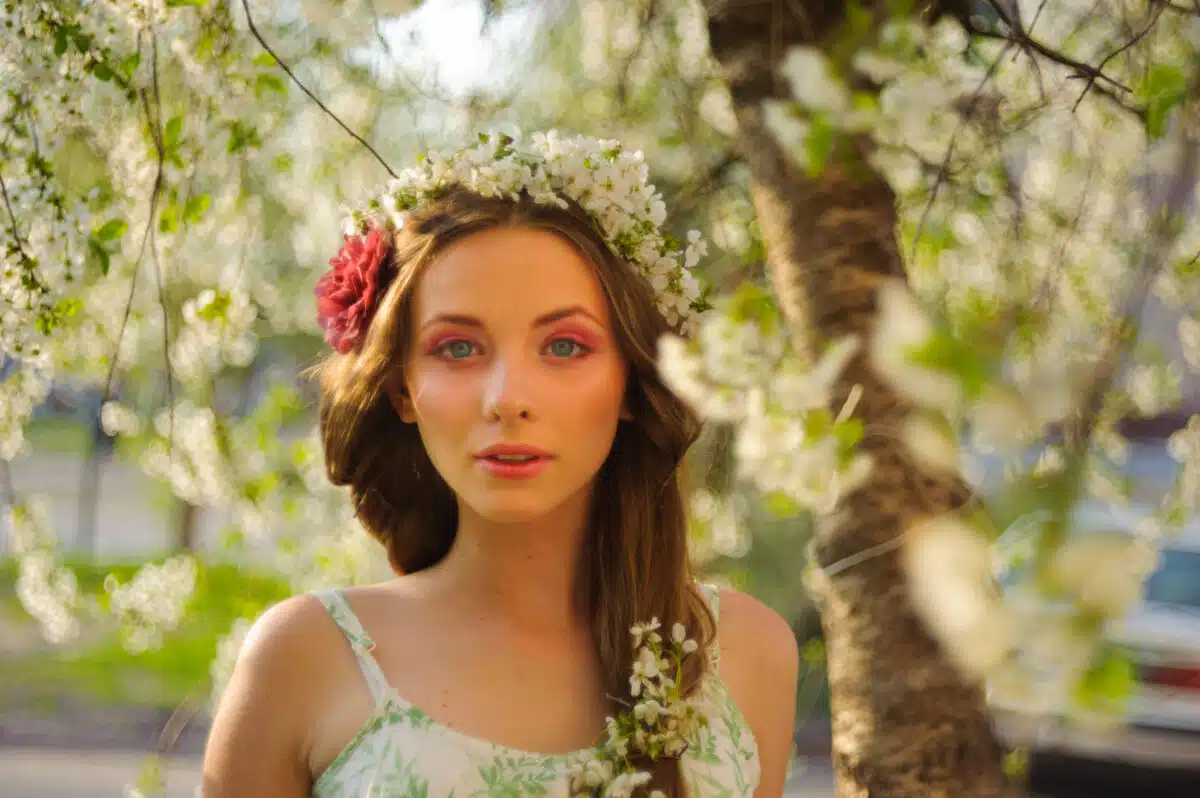
“An Old Portrait” by Margaret Widdemer
Flower-decked, wide-skirted, from her oval frame
She watches us between the drooping curls
And smiles a little as she always smiled.
She was a woman of the older day:
She could not cry of elemental things,
She suffered them, scarce knowing what they were—
She could not speak of them aloud to men.
Lady and slave, saint and barbarian,
She was not just cold or merciful,
She only swiftly hated or adored;
Her heart was narrow-bound and passionate,
Smoothed out and wreathed with blue forget-me-nots
Valentine-fashion, lest the red should show.
She could not speak of love aloud to men—
She could have died for love:
Brave for her love’s sake against gods or friends,
Brave for her love’s sake against even men
(The more real gods of her idolatry)
She was not wise nor public-spirited;
She could bear heroes, never understand them.
Her passions hid themselves in sentiment
Or broke in sobs at night-time silently
Lest anyone should hear them and be grieved.
She drugged her mind when all her work was through
For a brief time, with other women’s work,
Stories of feverish love she dreamed might be,
Or knew was not, or wished could be for her,
Of women like herself, men she had seen
Through the rose-glow of courtship long ago,
Ere she was flung from haloed ignorance
Into the pit of Truth her wedding-ring
Was trap to—and through all the shock held still
And smiled a little as she always smiled.
She lived within a world with walls made proof
From noise of evil or suffering,
Shut in her cell from other women’s pain;
But then she hated other women still
Beneath her gentleness and courtesy;
They might desire to win some man of hers,
Husband or son or brother that she loved.
Sincere in self-deception, loving God,
(That personal God who could not help the ill,
But it must be thanked for good), doing for Him
Kind concrete little deeds to palliate
The great world-sores the while she shut her eyes
To the sores’ causes—
Still she sits, a sphinx,
Half goddess, half a tigress! Silent still
And smiling: gentle, good, she bends and smiles
Between the drooping curls, below the wreath,
Down at the fetter-bracelets on her hands,
Smiles up a little still from out the frame
That circumscribes her like her world of old.
“Sonnet 61” by William Shakespeare
Is it thy will, thy image should keep open
My heavy eyelids to the weary night?
Dost thou desire my slumbers should be broken,
While shadows like to thee do mock my sight?
Is it thy spirit that thou send’st from thee
So far from home into my deeds to pry,
To find out shames and idle hours in me,
The scope and tenure of thy jealousy?
O, no! thy love, though much, is not so great:
It is my love that keeps mine eye awake:
Mine own true love that doth my rest defeat,
To play the watchman ever for thy sake:
For thee watch I, whilst thou dost wake elsewhere,
From me far off, with others all too near.
“Sonnet 79 (Covetous Eyes! What Did You Late Behold?)” by Barnabe Barnes
Covetous Eyes! What did you late behold?
My Rival gracèd with a sun-bright smile!
Where he, with secret signs, was sweetly told
Her thoughts; with winks, which all men might beguile!
Audacious, did I see him kiss that hand
Which holds the reins of my unbridled heart!
And, softly wringing it, did closely stand
Courting with love terms, and in lover’s art!
Next (with his fingers kissed) he touched her middle!
Then saucy, (with presumption uncontrolled)
To hers, from his eyes, sent regards by riddle!
At length, he kissed her cheek! Ah me! so bold!
To bandy with bel-guards in interchange.
Blind mine eyes, Envy! that they may not range!
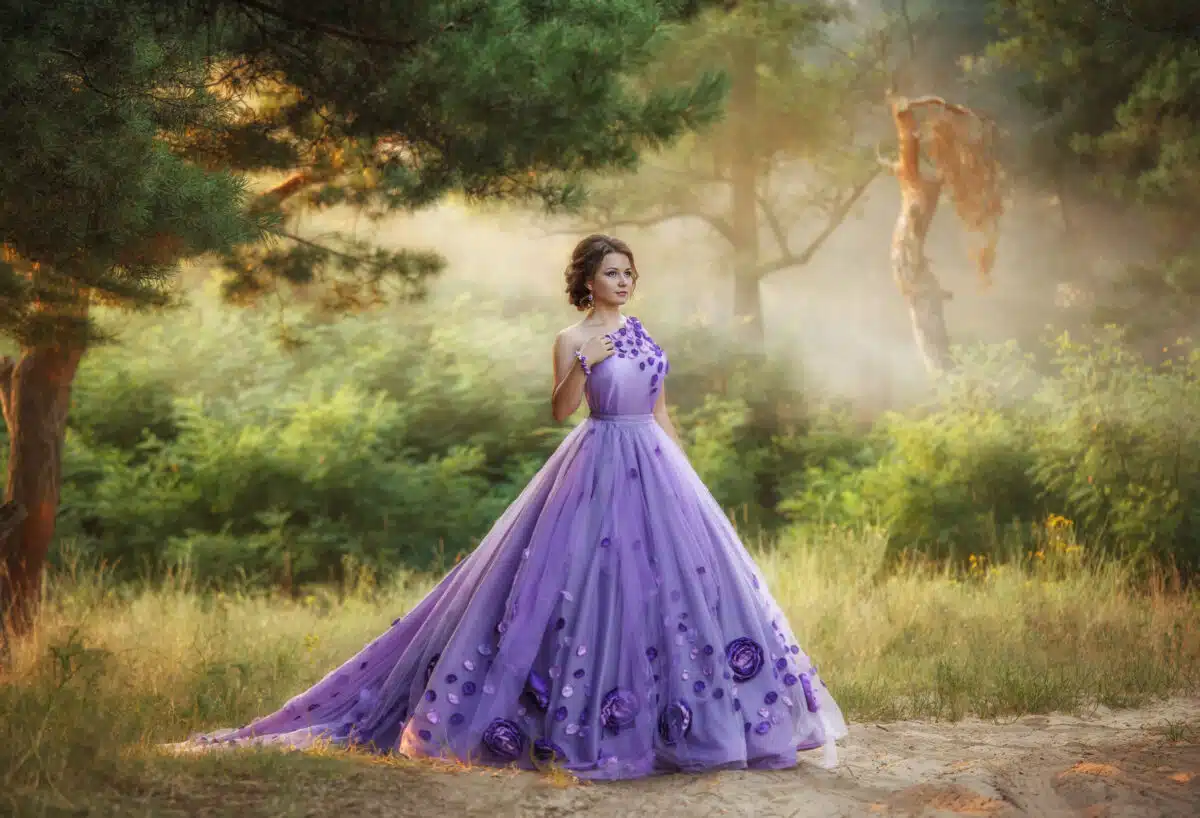
“Sonnet 35” by Edmund Spenser
My hungry eyes, through greedy covetise
Still to behold the object of their pain,
With no contentment can themselves suffice;
But, having, pine; and, having not, complain.
For, lacking it, they cannot life sustain;
And, having it, they gaze on it the more;
In their amazement like Narcissus vain,
Whose eyes him starv’d: so plenty makes me poor.
Yet are mine eyes so filled with the store
Of that fair sight, that nothing else they brook,
But loathe the things which they did like before,
And can no more endure on them to look.
All this world’s glory seemeth vain to me,
And all their shows but shadows, saving she.
“Answer to Chloe Jealous” by Matthew Prior
Dear Chloe, how blubber’d is that pretty face!
Thy cheek all on fire, and thy hair all uncurl’d:
Pr’ythee quit this caprice; and, as old Falstaff says,
Let us e’er talk a little like folks of this world.
How canst thou presume, thou hast leave to destroy
The beauties which Venus but lent to thy keeping?
Those looks were design’d to inspire love and joy;
More ordinary eyes may serve people for weeping.
To be vext at a trifle or two that I writ,
Your judgment at once, and my passion, you wrong:
You take that for fact, which will scarce be found wit;
Ods life! must one swear to the truth of a song?
What I speak, my fair Chloe, and what I write, shows
The difference there is betwixt nature and art:
I court others in verse—but I love thee in prose;
And they have my whimsies—but thou hast my heart.
The God of us verse-men (you know, child) the Sun,
How after his journeys he sets up his rest:
If at morning o’er Earth ’t is his fancy to run;
At night he declines on his Thetis’ breast.
So when I am wearied with wandering all day;
To thee, my delight, in the evening I come:
No matter what beauties I saw in my way:
They were but visits, but thou art my home.
Then finish, dear Chloe, this pastoral war;
And let us like Horace and Lydia agree;
For thou art a girl as much brighter than her,
As he was a poet sublimer than me.
“The doubtful Lover resolveth to be assured whether he is to live in joy or woe” by Sir Thomas Wyatt
Lo! how I seek and sue to have
That no man hath, and may be had;
There is [no] more but sink or save,
And bring this doubt to good or bad.
To live in sorrows always sad,
I like not so to linger forth;
Hap evil or good I shall be glad
To take that comes, as well in worth.
Should I sustain this great distress,
Still wandering forth thus to and fro,
In dreadful hope to hold my peace,
And feed myself with secret woe?
Nay! nay! certain, I will not so!
But sure I shall myself apply
To put in proof this doubt to know,
And rid this danger readily.
I shall assay by secret suit
To shew the mind of mine intent;
And my deserts shall give such fruit
As with my heart my words be meant;
So by the proof of this consent
Soon out of doubt I shall be sure,
For to rejoice, or to repent,
In joy, or pain for to endure.
